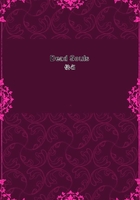
第68章
Beginning abruptly with the words "I MUST write to you," the letter went on to say that between a certain pair of souls there existed a bond of sympathy; and this verity the epistle further confirmed with rows of full stops to the extent of nearly half a page. Next there followed a few reflections of a correctitude so remarkable that I have no choice but to quote them. "What, I would ask, is this life of ours?" inquired the writer. "'Tis nought but a vale of woe. And what, I would ask, is the world? 'Tis nought but a mob of unthinking humanity." Thereafter, incidentally remarking that she had just dropped a tear to the memory of her dear mother, who had departed this life twenty-five years ago, the (presumably) lady writer invited Chichikov to come forth into the wilds, and to leave for ever the city where, penned in noisome haunts, folk could not even draw their breath. In conclusion, the writer gave way to unconcealed despair, and wound up with the following verses:
"Two turtle doves to thee, one day, My dust will show, congealed in death;And, cooing wearily, they'll say:
'In grief and loneliness she drew her closing breath.'"True, the last line did not scan, but that was a trifle, since the quatrain at least conformed to the mode then prevalent. Neither signature nor date were appended to the document, but only a postscript expressing a conjecture that Chichikov's own heart would tell him who the writer was, and stating, in addition, that the said writer would be present at the Governor's ball on the following night.
This greatly interested Chichikov. Indeed, there was so much that was alluring and provocative of curiosity in the anonymous missive that he read it through a second time, and then a third, and finally said to himself: "I SHOULD like to know who sent it!" In short, he took the thing seriously, and spent over an hour in considering the same. At length, muttering a comment upon the epistle's efflorescent style, he refolded the document, and committed it to his dispatch-box in company with a play-bill and an invitation to a wedding--the latter of which had for the last seven years reposed in the self-same receptacle and in the self-same position. Shortly afterwards there arrived a card of invitation to the Governor's ball already referred to. In passing, it may be said that such festivities are not infrequent phenomena in county towns, for the reason that where Governors exist there must take place balls if from the local gentry there is to be evoked that respectful affection which is every Governor's due.
Thenceforth all extraneous thoughts and considerations were laid aside in favour of preparing for the coming function. Indeed, this conjunction of exciting and provocative motives led to Chichikov devoting to his toilet an amount of time never witnessed since the creation of the world. Merely in the contemplation of his features in the mirror, as he tried to communicate to them a succession of varying expressions, was an hour spent. First of all he strove to make his features assume an air of dignity and importance, and then an air of humble, but faintly satirical, respect, and then an air of respect guiltless of any alloy whatsoever. Next, he practised performing a series of bows to his reflection, accompanied with certain murmurs intended to bear a resemblance to a French phrase (though Chichikov knew not a single word of the Gallic tongue). Lastly came the performing of a series of what I might call "agreeable surprises," in the shape of twitchings of the brow and lips and certain motions of the tongue. In short, he did all that a man is apt to do when he is not only alone, but also certain that he is handsome and that no one is regarding him through a chink. Finally he tapped himself lightly on the chin, and said, "Ah, good old face!" In the same way, when he started to dress himself for the ceremony, the level of his high spirits remained unimpaired throughout the process. That is to say, while adjusting his braces and tying his tie, he shuffled his feet in what was not exactly a dance, but might be called the entr'acte of a dance: which performance had the not very serious result of setting a wardrobe a-rattle, and causing a brush to slide from the table to the floor.
Later, his entry into the ballroom produced an extraordinary effect.